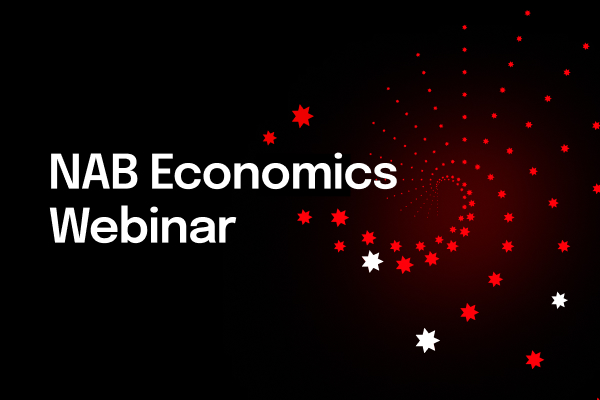Sally Auld, NAB Group Chief Economist, shares her insights on the economy


Webinar
Consumption growth continues to moderate in the latest NAB Data Insights release for the week-ended 20 February 2021.
In this podcast, NAB Chief Economist, Alan Oster gives you a 10 minute summary of our analysis of consumer spending.
Listen to the full podcast now. If listening on a mobile device, click listen in browser.
Consumption growth continues to moderate in the latest NAB Data Insights release for the week-ended 20 February 2021. Retail was 4.8% higher last week, but hospitality (0.0%) was flat. The food side of spending is still growing (9.4% y/y) but has slowed. The biggest challenge for hospitality is the worsening of accommodation (-27.1% last week from -24.3% the week prior). The four-week moving average indicates that overall spend (5.1%) is levelling off at between 4 to 6% growth.
The five-day “circuit breaker” lockdown in Victoria saw a sharp contraction last week, down 6.3% y/y. Previous Australian lockdowns have been followed by rapid snap backs, and we expect the same to occur here. Nonetheless, the lockdown clearly hit the national headline result.
Consumption trends by sector remain a mixed bag. Construction slowed this week (+7.1%) but remained positive, while hospitality was flat. Growth accelerated for arts and recreation (+13.8% weekly y/y), driven by a pick-up in gambling (+59.0%), but all other key sub sectors contracted. The worst performing sector, administration and support services, is clearly still struggling, off 74.7%, with travel agents down -80.9%. Meanwhile, education (+2.8%) returned to growth last week, driven by a moderate increase for school education (5.8%). Health and social services (+3.3%) slowed, driven by considerable slowing in allied health (0.3%). Childcare, pathology/diagnostics, and social assistance contracted.
Rental, hiring and real estate (-5.2%) contracted again, driven by worsening car hire (-28.4%) and goods hire (-5.8%), although real estate services (-2.7%) and property operators (+14.1%), improved on the week prior, albeit with the former still contracting.
Business inflows data remains positive overall, with a six-week rolling average y/y growth rate of 12.2%. Only accommodation and food services contracted, while retail trade saw the strongest growth at 21.3%, followed by Transport, Postal & Warehousing at 15.8%.
JobKeeper is now only having a small impact on business inflows overall, although remains important for some industries. Without JobKeeper, growth was in the order of 11.7% last week, although accommodation and food services is much more dependent on the program, with growth ex-JobKeeper last week of -6.5% rather -3.5%.
For further details please see NAB data insights 20 February 2021 report
© National Australia Bank Limited. ABN 12 004 044 937 AFSL and Australian Credit Licence 230686.